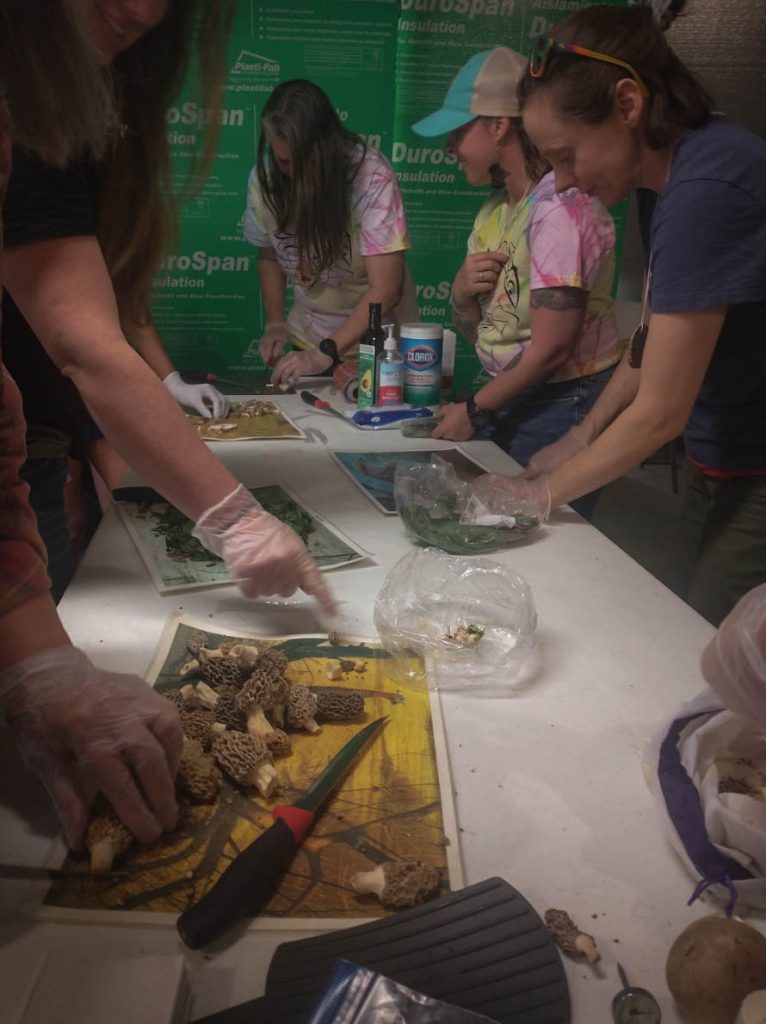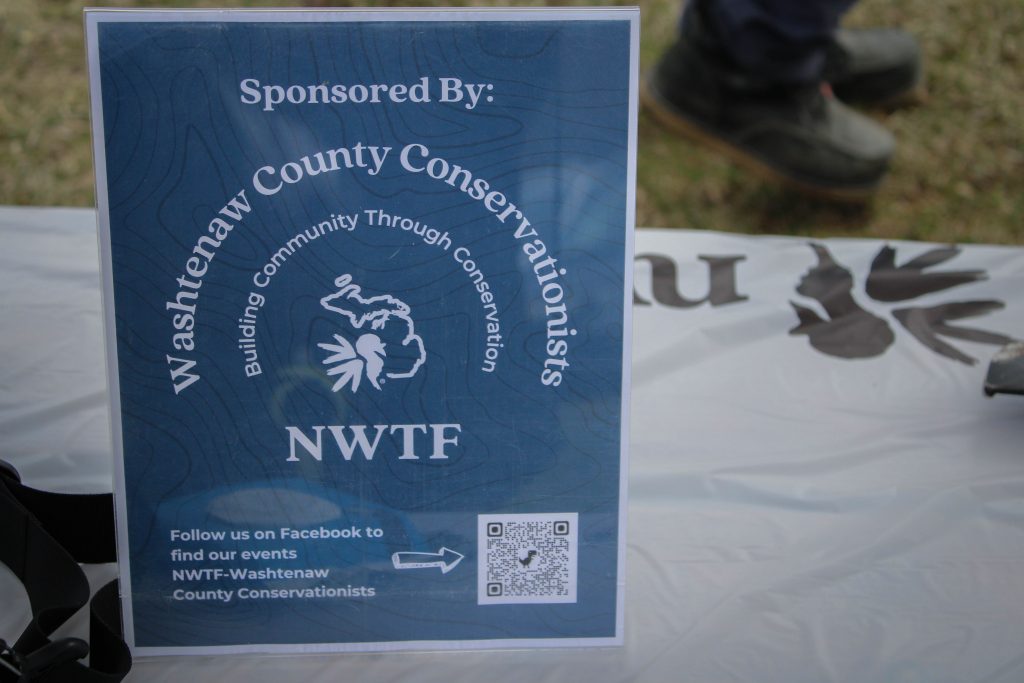Local Michigan NWTF Chapter and Partners Hold Wild Food Walk and Cooking Event
EDGEFIELD, S.C. – Spring is a fantastic time to start getting back out in the woods, especially in the North. Michigan’s woods are slowly coming back to life with spring ephemerals, budding trees and of course gobbling turkeys. In celebration of the spring season, the NWTF joined the Wild Women of Washtenaw Outdoors Event to help get over 100 women together to learn about all the spring has to offer, including hunting, foraging and a variety of outdoor activities.
But for women who have never been hunting before, it can feel daunting trying to figure out where to start. Across the country, states have Becoming an Outdoors Woman (BOW) programs designed to teach women outdoor skills by providing them with information, encouragement and hands-on instruction in outdoor skills, such as fishing, shooting, archery, hunting, trapping and outdoor cooking.
Jen Davis, NWTF hunting and shooting R3 coordinator based in Michigan, had the opportunity to lead a wild food hike and host a wild food cooking course at the 25th annual Wild Women of Washtenaw (WWOW) Outdoors Event.
The event saw over 100 attendees and featured knife throwing, air gun shooting, and other drop-in programs on Friday night. On Saturday, there were several programs for women to choose from, like making bird feeders, learning about falconry, turkey calling, shooting rifles and archery.
“I attended my first WWOW event 13 years ago to do a hunter’s safety course,” Davis said. “I took a turkey calling class, even though I didn't plan to hunt turkeys. And now, Paul, who teaches that class, is beyond proud that 13 years ago I showed up not knowing the difference between a shotgun and a rifle, and now to see where I've ended up, it's just one of those full-circle moments for him to be able to see that the volunteer work he put in years ago has turned into something.”
But before Davis was a turkey hunter, she was a forager. She started volunteering with WWOW by leading a wild food program, walking around the sports club grounds with attendees and gathering common weeds like dandelions or plantains that can be made into tea or little salads.
Now when Davis leads a foraging hike, she makes sure to also mention that hunting is another sustainable way to harvest food from the land, continuing to engage new people with the hunting community and continuing to bridge the gap. Davis herself is an example of someone who learned how to harvest food from the land with edible plants and continued that journey towards becoming a hunter.
During the wild foods cooking class, she taught everyone how wild game is different from domesticated animals and how it should be cooked differently. At this year’s class, Davis brought in a venison back strap, a bag of morels that she harvested on the club grounds, some ramps and some stinging nettles.

“It was all the most delicious spring things that participants got their hands on, and because it's interactive and because we're eating together, the conversation just kind of flows,” Davis said. “We even had conversations about invasive species, and how they're not bad, they're just in the wrong place. Just working to really build a nuanced relationship with the natural world, I think, is the gift of classes like these.”
Women attend these events for so many different reasons. But if someone has never spent a lot of time outdoors trying to identify plants, then it's going to feel overwhelming. Davis offers an analogy:
"It's like walking into a stadium full of people. You can't expect to get to know everyone who's there. You'll have to pick one or two people and get to know them and then kind of build from there. Once you start getting intimately connected with one or two plants or even one animal, one wildlife species, and really get to know them on a personal level, then you really start to connect with nature in a totally different way, and it creates this really rich relationship.”

In the last couple of months, Davis has been getting together folks to revive the Washtenaw County Conservationists Chapter of the NWTF with the hopes that it will be another outlet for bringing residents outdoors. The young chapter has been working with the Washtenaw Sportsman's Club as a partner for events like this one, as well as helping with their Junior Rifle program and starting up events in the black powder shooting range.
This cross-pollination collaboration between organizations is becoming more popular in the R3 sector. Arizonia and Pennsylvania are examples of states using this partnership model, where different entities and organizations are partnering to host events collaboratively. Working together, all organizations are hoping to have more success recruiting new hunters, building a larger R3 community, offering support to one another and providing their own piece for attendees to experience.
